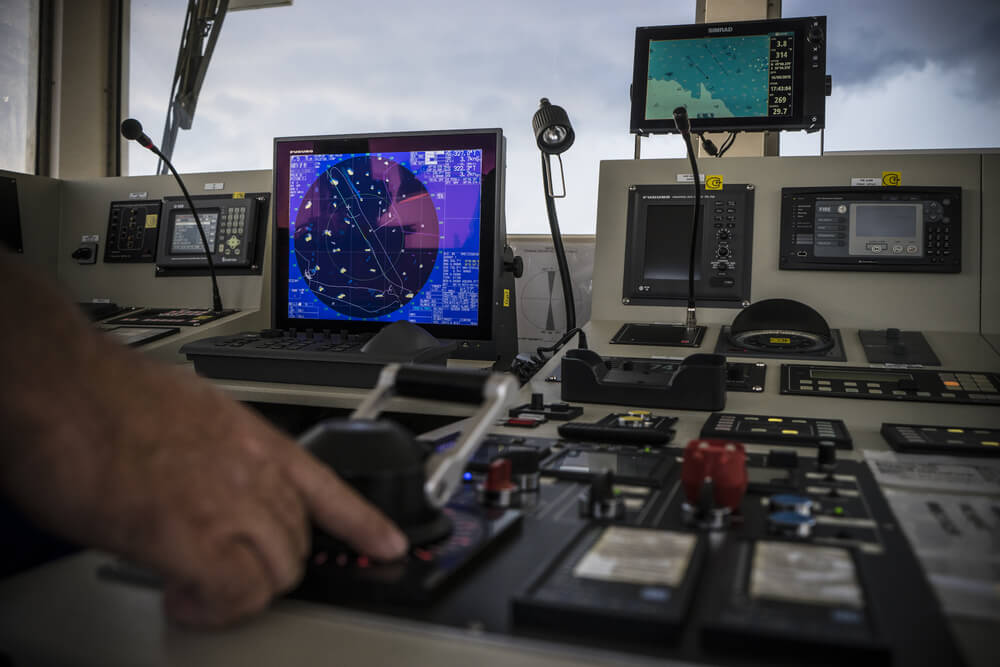A little over a year ago, Qantas pilots reported interference to their radio communications and GPS during a flight over the Pacific coming from Chinese warships.
Since then, GPS jamming in air and maritime traffic has seen tremendous growth, particularly in conflict and crisis zones around Russia, the Middle East, and the Asia-Pacific.
The hidden global conflict over GPS, as it was called until just two years ago, has not been "hidden" for a long time, and its global dimension has become even more pronounced.
Civilian air traffic in the Baltic zone has experienced a considerable increase in GPS jamming, which authorities in the most susceptible countries believe originates from Russia's enclave of Kaliningrad.
This forced two Finnair aircraft to return to Helsinki last week, and Tartu Airport in Estonia was blocked for a month until alternative navigation systems other than GPS were operational.
"This is a deliberate action that interferes with our lives lived in a dangerous situation and this can be considered as a hybrid attack", said Margus Tsahkna, Estonia's Minister of Foreign Affairs.
Over the last nine months, up to 46,000 aircraft have had GPS malfunctions over the Baltic Sea. Nearly a thousand planes lost GPS over the Baltic in the first two months of this year alone, and seven times more flights experienced some navigational issue than in the same period in 2023.
Jamming GPS navigation over the high-frequency corridor above the Baltic Sea has intensified since the entry of Sweden and Finland into NATO, making the Baltic a "NATO lake" area.
Increased jamming with the supposed centre in Russian Kaliningrad is partly Russia's response to the new security situation following NATO's encirclement of the Baltic region.
North Korea has reactivated GPS jamming
At the same time, on the opposite, eastern side of Eurasia, North Korea disrupted GPS communications in the region for the first time in eight years during joint military exercises between South Korea and the US.
GPS jamming lasted for three consecutive days in early March, during the joint exercise of South Korea and the US, Freedom Shield. Even though Pyongyang's action did not cause damage to the allies' military communications, GPS interruptions were registered.
The alliance between Russia and North Korea has become solid since the start of Russian aggression against Ukraine
The last similar actions were taken by North Korea eight years ago, when GPS jamming was registered with close to a thousand planes and around 700 ships in the region.
The alliance between Russia and North Korea has become solid since the start of Russian aggression against Ukraine. Faced with the reduction of its reserves, Russia has been importing large quantities of weapons (primarily ammunition) from North Korea, paying for them mainly with gas and oil but also with the transfer of military technology.
Therefore, their simultaneous increase in GPS jamming, each in its own range, could act as another synchronised disruptive action against a shared Western enemy.
Iranian actions in the region
Another shared ally, Iran, might have similar motives. Many cases of GPS jamming (more dangerous ones) have been registered since last year.
Last September, numerous business and civilian aircraft in the border zone of Iran and Iraq had "spoofing" incidents where GPS devices gave a false picture of the position. One of them, after being briefly disrupted, nearly entered Iranian airspace without permission. This could have provoked a reaction from Iran's air defences.
An area on the eastern outskirts of Tehran was used as the GPS signal broadcasting centre.
 Numerous merchant ships have been spoofed in recent months in the Eastern Mediterranean area
Numerous merchant ships have been spoofed in recent months in the Eastern Mediterranean area
Numerous merchant ships have been spoofed in recent months in the Eastern Mediterranean area. While the majority are considered to be the consequence of Israeli defensive cyber activity against incoming missiles, pro-Iranian troops in the vicinity are also expected to contribute to the disruption of navigation.
The same model is already widely used by the Russian army in the Black Sea zone to disrupt the actions of Ukrainian forces against its navy.
Since last January, spoofing has grown exponentially in this region, remaining at a high level. According to Lloyd, in just one day, April 1, more than 200 ships in the Black Sea experienced interference with their GPS navigation, showing their position deep inland.
Anti-GPS coalition
The anti-Western allies have an interest in increasing disruptions in GPS navigation, each in their own range, and the increasing intensity of such actions speaks of the synchronised creation of a separate battle front.
Even though GPS jamming does not endanger air and maritime navigation to the degree that would raise concern about accidents, its use on a large scale requires the utmost caution.
The economic consequences of the disruption are undeniable, given that it causes route changes, delays, and even flight cancellations, which have already begun in Finland and Estonia.
The jamming was designed to demonstrate the weakness of GPS as a US-based navigation system
The jamming was designed to demonstrate the weakness of GPS as a US-based navigation system.
The joint action of the allies—Russia, Iran, North Korea, and even China—in strengthening anti-GPS actions is particularly significant because it is designed to demonstrate the effectiveness of that coalition against the US and its allies.
“Working together, they enhance one another’s military capabilities; dilute the efficacy of US foreign policy tools, including sanctions; and hinder the ability of Washington and its partners to enforce global rules. Their collective aim is to create an alternative to the current order”, wrote Andrea Kendall-Taylor and Richard Fontaine in Foreign Affairs.